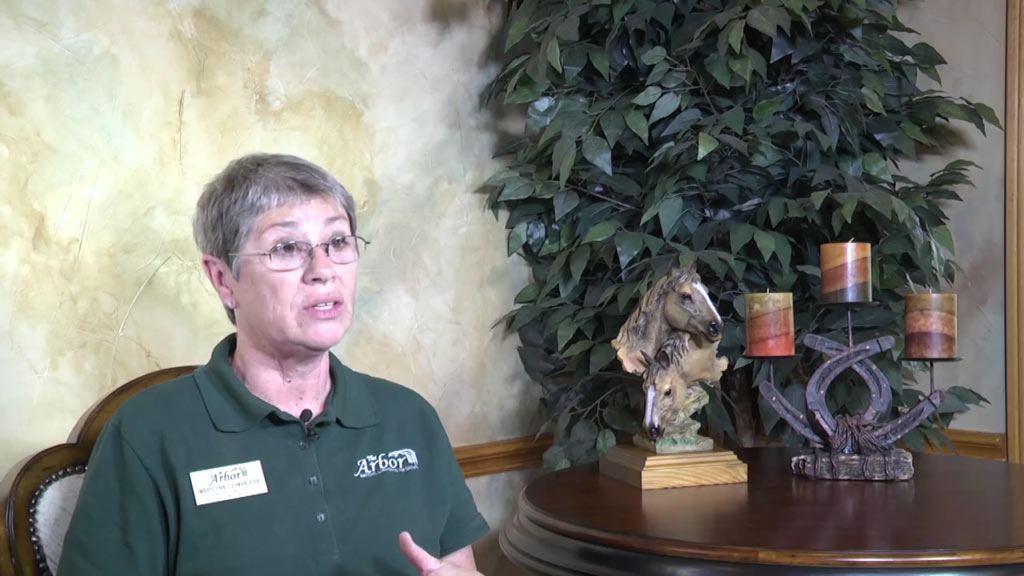I’d like to tell you a little bit about what we do at The Arbor in the equine program. We utilize horses primarily because they’re so sensitive. Horses respond to what’s going on on the inside of us, not necessarily what we’re showing on the outside. When what is going on on the inside is the same as what’s going on on the outside, the horses are very comfortable with us. They’ll connect to us. They’ll be cooperative with us. They’ll do what we’re asking them to do. But whenever we’re incongruent when we’re stuffing our feelings or emotions, the horses have a really hard time dealing with us. They’re very sensitive, so they feel that incongruence. And they may not know what’s going on inside you, but they know that something’s wrong. In this way, horses are kind of like mirrors to what goes on inside of us. We have an exercise – the first exercise the clients do. It’s called the bonding exercise. And the clients pick a horse to work with, and I hold the horse on a lead shank, and the client just stands there and we watch the horse, and the horse is either gonna connect to that person or not. And if that person is congruent, the horse will automatically move into the space of that person and literally connect with them. If that’s what happens, then I’ll know what’s going on with this guy is pretty authentic. I may ask him some questions to see if any walls go up. And if they do, you’ll see the horse move away. More often than not, however, with new clients that are coming into the program, when they’re standing next to the horse, the horse cannot connect because an addict that’s just fresh into treatment coming in for the first time maybe is often times very fragmented from himself or herself and usually suppressing feelings. They don’t have coping skills to deal with, and there’s a whole lot going on that the client just doesn’t have any conscious awareness of. When that’s the case, the horse does not connect. He’s gonna stay away. If that energy – that person’s energy – is really, really suppressed with a lot of anger or grief, that horse may even try to move away from that person. I’ll have a dialogue with the client, and if I can get that client aware of what’s just below the surface of consciousness, the horse will automatically come in. And those issues that we identify that way become treatment issues because those are the things that are going to be the relapse triggers – those things that are just below the surface. Equine therapy is an experiential therapy. Just like a ropes course therapy is experiential, that’s what equine therapy is like in terms of it allows the clients to experience what it is they’re learning. We use horses because they’re so amazing. They’re graceful. They’re huge. They can be very intimidating to people who have not been around them. They are sweet and can give back. They give back this unconditional positive regard. They have no judgment. However you are, they’re fine with that. And for a lot of clients, that’s a rarity. They haven’t gotten that a lot in their lives – that unconditional positive regard. So, the horses are very giving. And the horses we have here at The Arbor, oh, they’re old souls. They’ve been doing equine therapy – well, the four of them – Bay Boy, Ashley, Dozer and Maggie – have been doing equine therapy for over ten years. If you have a substance abuse problem and are thinking about coming to a residential treatment center, we hope you come to The Arbor. I’d love to meet you in the barn and work with you with the horses.
Addiction Treatment Through Equine Assisted Therapy


